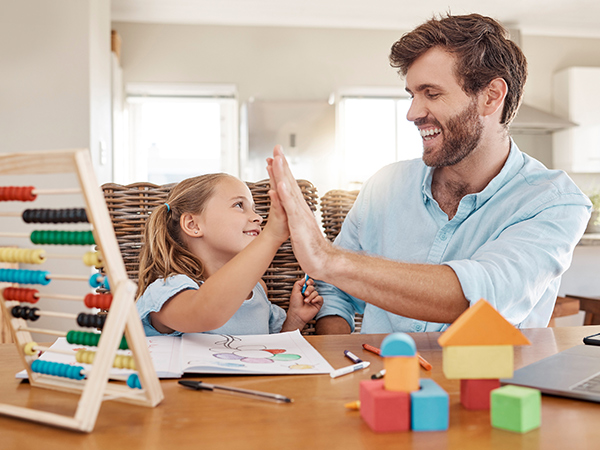Positive Discipline is an approach that emphasizes the importance of fostering healthy and respectful relationships between parents and children. This technique encourages parents to guide their children towards self-discipline, empathy, and cooperation, all while maintaining a loving and supportive environment. By implementing Positive Discipline, families can develop stronger bonds built on mutual respect and understanding.
Positive Discipline

Positive Discipline focuses on teaching children valuable life skills through non-punitive methods. The goal is not just to correct behavior but to foster emotional intelligence, resilience, and social responsibility. Unlike traditional disciplinary methods that may involve punishment or reward systems, Positive Discipline seeks to engage with children in ways that promote connection and understanding.
Understanding Positive Discipline Philosophy
At its core, the philosophy of Positive Discipline is rooted in the belief that children are inherently good and want to learn. Rather than viewing misbehavior as a means of defiance, this approach sees it as an opportunity for growth.
Parents who adopt this philosophy understand that discipline should focus on education rather than retaliation. Instead of punishing a child for mistakes, parents help them navigate their feelings and actions, transforming those moments into teachable experiences. This shift in perspective can drastically change family dynamics, replacing frustration with collaboration.
Additionally, Positive Discipline acknowledges the role of emotions in behavior. Children often act out due to unmet needs, misunderstandings, or emotional distress. By addressing these underlying issues rather than simply correcting behavior, parents can create a more empathetic atmosphere where children feel safe to express themselves.
The Importance of Connection
One of the most significant advantages of Positive Discipline is its emphasis on emotional connection between parents and children. When parents practice this approach, they prioritize building trust and mutual respect.
Children thrive when they feel understood and valued. This connection fosters a sense of belonging and security, which is essential for healthy emotional development. Engaging in meaningful conversations, active listening, and showing genuine interest in a child’s thoughts and feelings enhances this bond.
Moreover, strong connections lead to better communication. Children are more likely to express their needs and concerns openly, allowing parents to address potential issues before they escalate. By nurturing a relationship based on understanding, parents can guide their children more effectively.
Developing Emotional Intelligence
Another critical component of Positive Discipline is its role in developing emotional intelligence. Emotional intelligence involves recognizing one’s own feelings and understanding the emotions of others.
By applying Positive Discipline, parents teach their children to identify and articulate their emotions. For example, instead of telling a child to “stop crying,” a parent might say, “I see you’re upset. Can you tell me what happened?” This validation of feelings encourages children to explore and communicate their emotions, promoting healthier emotional processing.
Additionally, learning how to navigate emotions prepares children for future challenges. They become more adept at managing stress, resolving conflicts, and empathizing with others. As they grow, these skills will serve them well in both personal and professional contexts.
Positive Discipline Techniques to Strengthen Parent-Child Relationships
Implementing Positive Discipline techniques can significantly enhance the quality of parent-child relationships. These strategies create opportunities for engagement and growth, reinforcing a family’s bond.
Encouraging Collaborative Problem-Solving
One effective technique within Positive Discipline is collaborative problem-solving. This method involves parents and children working together to identify issues and brainstorm solutions.
When a conflict arises, instead of dictating consequences, parents can invite their children to participate in finding a resolution. For instance, if a child struggles with sharing toys, a parent can ask, “What do you think we can do to make playtime fair?” This approach empowers children and allows them to contribute meaningfully to family discussions.
Collaborative problem-solving promotes critical thinking and decision-making skills. It also demonstrates to children that their opinions matter, fostering a sense of autonomy and responsibility. As parents validate their children’s input, they reinforce the idea that they are partners in the journey of growth.
Setting Clear Expectations and Boundaries
While Positive Discipline emphasizes kindness and understanding, it does not negate the necessity of setting clear expectations and boundaries. Establishing rules helps children understand acceptable behavior while feeling secure in their environment.
Parents can work alongside their children to create a family agreement outlining shared values and behavioral expectations. This not only clarifies acceptable behavior but also instills a sense of ownership in children. When they actively participate in creating the rules, they are more likely to adhere to them.
Communication is key when discussing expectations. Parents can frame conversations positively, using language that focuses on what children should do, rather than what they shouldn’t. For example, instead of saying, “Don’t interrupt,” a parent could say, “Let’s take turns talking.” This reframing reinforces positive behavior and maintains a constructive tone.
Fostering Empathy through Role-Playing
Role-playing is another powerful technique within Positive Discipline that encourages empathy and understanding. Parents can use imaginative scenarios to help children recognize different perspectives, enhancing their ability to relate to others.
For instance, a parent might set up a role-play scenario where one child plays the role of someone being teased, while another portrays the instigator. This exercise allows children to step into each other’s shoes, fostering compassion and awareness of the impact of their actions.
Through role-playing, parents can also model appropriate responses to challenging situations. This demonstration provides children with concrete examples of how to navigate conflicts effectively, reinforcing the skills necessary for healthy interpersonal relationships.
Moreover, incorporating humor and creativity in these exercises can make the experience enjoyable and memorable. Children are more likely to retain lessons learned during playful activities, strengthening their grasp of empathy and social skills.
Utilizing Natural Consequences for Learning Opportunities
In the spirit of Positive Discipline, parents can utilize natural consequences as learning opportunities. This technique allows children to experience the results of their actions, helping them connect choices with outcomes in a tangible way.
For example, if a child refuses to wear a jacket on a chilly day, experiencing discomfort serves as a lesson about making wise choices. Instead of scolding the child, a parent can calmly acknowledge the situation, stating, “I see you’re feeling cold. Next time, wearing your jacket might help.”
Natural consequences encourage children to reflect on their decisions and promote self-regulation. This method teaches accountability without assigning blame, empowering children to learn from their mistakes and avoid repeating them.
Moreover, parents can facilitate discussions around natural consequences, allowing children to express their thoughts and feelings about their experiences. This dialogue reinforces the bond between parent and child while guiding them toward better decision-making in the future.
Conclusion
In conclusion, Positive Discipline is a transformative approach that strengthens the bond between parents and children. By fostering emotional intelligence, encouraging collaboration, and utilizing various techniques, families can cultivate relationships built on trust, understanding, and respect.
Through the implementation of Positive Discipline Techniques to Strengthen Parent-Child Relationships, parents can empower their children to become responsible, empathetic individuals. As they navigate the path of parenting together, families can embrace challenges as opportunities for growth, ensuring a harmonious and loving home environment.
Family Therapy Benefits: Enhance Relationships and Heal Together for Lasting Change

